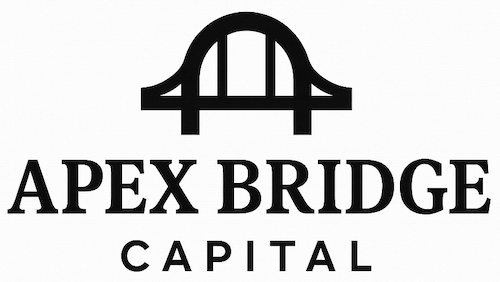
Equity Financing
Quick Overview
Repaid in regular monthly payments over time
Secured by equipment financed with 10%–20% down payment
Interest rates vary from 8%–25%
Available from traditional and online lenders
Whether it’s a commercial oven, dental X-ray machine, or just a few more desks, every growing business eventually needs to invest in new equipment. But purchasing equipment outright can require a substantial amount of capital—capital that might be better allocated elsewhere in the business. That’s where equipment financing comes in.
With the right financing, you can get the tools your business needs without draining your cash reserves. Equipment financing typically comes in two forms:
Equipment loans
Equipment leases
Each option has its own pros, cons, and ideal use cases. Here’s a breakdown to help you determine which might be the better fit for your business.
Equipment Loans
Equipment loans are a common way for businesses to purchase machinery, vehicles, technology, or tools—anything tangible that supports day-to-day operations. With this type of financing, you borrow money to purchase equipment outright, then repay the loan over time in fixed monthly installments.
Where to Get Equipment Loans
Depending on your business history and credit profile, equipment loans are available from:
Commercial banks
Credit unions
Online or alternative lenders
SBA-backed loan programs
Loan amounts can vary widely. In some cases, equipment loans may be smaller and easier to qualify for than other forms of business credit. Lenders typically require a down payment—usually around 20% of the equipment’s value—though some SBA options require as little as 10%.
What Equipment Qualifies?
If the item is a physical, tangible asset that will help your business operate or grow, it’s likely to qualify. This includes:
Restaurant ovens and prep equipment
Delivery vans or trucks
Dental or medical imaging machines
Industrial tools and heavy machinery
Computers, servers, or POS systems
Even highly specialized gear may be eligible, depending on the lender.
Loan Terms and Interest Rates
Terms vary by lender and loan size, but here’s what to expect:
Repayment period: 1 to 7 years (some SBA loans allow up to 10 years)
Interest rate: Typically 8% to 25% based on your credit and the lender
Collateral: Usually the equipment itself
Traditional banks may offer lower rates but have stricter qualification requirements. Credit unions can be a bit more flexible and may offer longer terms—but you need to be a member to apply. Online lenders tend to move faster and may approve borrowers with lower credit, but often at higher interest rates and shorter terms (6–24 months).
Regardless of lender type, interest on an equipment loan is tax-deductible.
How to Apply
Like other types of business financing, the key to a successful application is preparation. Lenders typically want to see:
A business plan showing how the equipment will contribute to growth
Profit and loss statements or other proof of cash flow
A personal resume demonstrating your experience (especially for newer businesses)
The application and approval process is generally faster than a traditional business loan. Many lenders provide decisions within just a few days.
Equipment Leasing
Leasing is another option, especially if you expect the equipment to depreciate quickly or need regular upgrades. With a lease, you don’t own the equipment—you pay to use it over a set term, and at the end of that term, you may have the option to buy it, return it, or upgrade.
When Leasing Makes Sense
Leasing may be a better fit than buying if the equipment:
Will need to be replaced often (e.g., computers or software)
Becomes obsolete quickly (e.g., medical technology)
Will get heavy wear and tear
Is cost-prohibitive to buy outright
Leases are particularly attractive for fast-moving industries or businesses looking to preserve working capital.
Lease Terms and Tax Benefits
Down payment: Often none required
Monthly payments: Typically lower than loan payments
Tax benefit: You can usually deduct the full lease payment as a business expense (as long as there’s no option to purchase at the end)
Some leases even include terms that let you upgrade to newer models partway through the contract.
Pros of Leasing
Easier to qualify for than loans
Lower upfront costs
Flexibility to upgrade or return equipment
Entire lease payment may be tax-deductible
Cons of Leasing
May cost more in the long run if you lease for years
Committed for the full lease term—even if you no longer need the equipment
No ownership unless you choose a lease-to-own structure
Leasing can be ideal when flexibility is important, but if you’re planning to use the same equipment for many years, buying might be more cost-effective.
Choosing the Right Option
When deciding between leasing and financing, ask yourself:
How long will I need the equipment?
If it’s for the long term, a loan may save money.Will the equipment need frequent upgrading?
If yes, leasing might make more sense.Can I afford a down payment?
Equipment loans usually require one; leases often don’t.Do I want ownership?
Leases offer usage, loans lead to ownership.
Also, consider how quickly you need the equipment. Online lenders or lease providers can often approve and fund your request within days—faster than most traditional banks.
Final Thoughts
Whether you take out a loan or sign a lease, equipment financing is a smart way to get the tools your business needs without tying up cash. The key is to match your financing choice to your business’s needs—today and in the future.
If you need the equipment for the long haul and can handle a down payment, a loan may offer better long-term value. If flexibility, speed, and minimal upfront cost are more important, leasing is likely the better path.
Either way, the right strategy can help your business grow without putting unnecessary strain on your finances.
